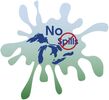Announcement
No-Spills will not be holding an annual conference in 2024.
Please check back for future updates!
No-Spills will not be holding an annual conference in 2024.
Please check back for future updates!
No-Spills History
After the Exxon Valdez oil spill, many Northern Michigan residents wondered what would happen here if a similar spill occurred in the Great Lakes.
A ship Captain from St. Ignace, Michigan, wondered the same thing. His name was Captain Harold Hulbert. He began doing something. He sent letters to shoreline communities asking them for support in planning for such an event. He was directed to the Emergency Management Division of the Michigan State Police, who in turn sent an announcement to the Emergency Management Directors of shorelines counties of the State's 7th District.
Their work led to the formation of the NORTHERN MICHIGAN WATERWAYS HAZARDOUS MATERIALS SPILL PLANNING COMMITTEE, later to be called No-Spills. On May 14, 1990, the first meeting of the No-Spills group was held. The purpose of the meeting was to identify players and assignments before a spill occurred. This would enable us on the Great Lakes to protect our waters and shores from such devastation.
Annual workshops have been held ever since. Many guest speakers, covering a wide range of topics, have assisted us in our goal: giving local government and industry information to minimize the effect and maximize the ability to recover from any hazardous spills on the Great Lakes.
Always striving to improve cooperation between government and industry through communication, it’s No-Spills belief that the workshops build awareness and cooperation, consequently reducing the threat of such an occurrence. Workshops have presented ideas for incorporating media into planning and how to work effectively in times of disaster; reviewed Federal agency rolls in planning issues; developed an awareness of how land use and ground water quality affect the ecosystem of the Great Lakes; reviewed actual events and the roles played by local, state and federal officials and by the media; how clean up of events plays into local planning; unusual clean-up methods, the roll state and federal laws play into the overall cleanup; wildlife rehabilitation and pre-planning; as well as natural resources, and damage control and mitigation.
No-Spills is a non-profit organization.
A ship Captain from St. Ignace, Michigan, wondered the same thing. His name was Captain Harold Hulbert. He began doing something. He sent letters to shoreline communities asking them for support in planning for such an event. He was directed to the Emergency Management Division of the Michigan State Police, who in turn sent an announcement to the Emergency Management Directors of shorelines counties of the State's 7th District.
Their work led to the formation of the NORTHERN MICHIGAN WATERWAYS HAZARDOUS MATERIALS SPILL PLANNING COMMITTEE, later to be called No-Spills. On May 14, 1990, the first meeting of the No-Spills group was held. The purpose of the meeting was to identify players and assignments before a spill occurred. This would enable us on the Great Lakes to protect our waters and shores from such devastation.
Annual workshops have been held ever since. Many guest speakers, covering a wide range of topics, have assisted us in our goal: giving local government and industry information to minimize the effect and maximize the ability to recover from any hazardous spills on the Great Lakes.
Always striving to improve cooperation between government and industry through communication, it’s No-Spills belief that the workshops build awareness and cooperation, consequently reducing the threat of such an occurrence. Workshops have presented ideas for incorporating media into planning and how to work effectively in times of disaster; reviewed Federal agency rolls in planning issues; developed an awareness of how land use and ground water quality affect the ecosystem of the Great Lakes; reviewed actual events and the roles played by local, state and federal officials and by the media; how clean up of events plays into local planning; unusual clean-up methods, the roll state and federal laws play into the overall cleanup; wildlife rehabilitation and pre-planning; as well as natural resources, and damage control and mitigation.
No-Spills is a non-profit organization.
Membership FAQs
Q: Who may participate and what is the committee comprised of?
A: All interested parties - Federal, State, County, City, Tribal Governments, Local Emergency Planning Organizations, Citizens, Business and Industry, and Media interested in the environmental quality of the Great Lakes and its tributaries.
Q: What is the committee involved in and what do they do?
A: The No Spills Committee hosts an annual conference that is recognized as one of the premier conferences conducted in the State of Michigan. Conference topics include updates on spill technologies, spill mitigation and planning, preparedness tools and techniques, environmental education and response and recovery case studies/examples. This conference focuses on networking and communication between attendees and organizations involved in spill response efforts.
Q: How do I join the committee and what is the cost?
A: There is no cost. Just let us know you're interested!
To join the committee and/or be added to our listserv, please contact us using the form below.
A: All interested parties - Federal, State, County, City, Tribal Governments, Local Emergency Planning Organizations, Citizens, Business and Industry, and Media interested in the environmental quality of the Great Lakes and its tributaries.
Q: What is the committee involved in and what do they do?
A: The No Spills Committee hosts an annual conference that is recognized as one of the premier conferences conducted in the State of Michigan. Conference topics include updates on spill technologies, spill mitigation and planning, preparedness tools and techniques, environmental education and response and recovery case studies/examples. This conference focuses on networking and communication between attendees and organizations involved in spill response efforts.
Q: How do I join the committee and what is the cost?
A: There is no cost. Just let us know you're interested!
To join the committee and/or be added to our listserv, please contact us using the form below.
